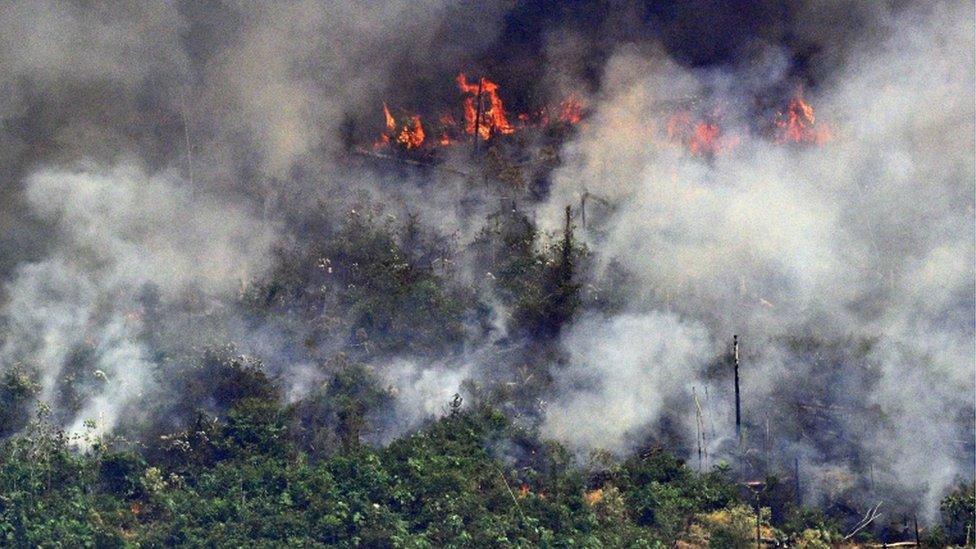Amazon fires: South American countries to meet to discuss response
- Published
"It's extremely upsetting... to see this kind of devastation" - the BBC's Will Grant flew over northern Rondonia state
South American countries will meet to discuss a coordinated response to the fires ravaging the Amazon basin next week, Brazil's President Jair Bolsonaro has announced.
It comes after he refused a G7 offer of $22m (£18m) following a spat with French President Emmanuel Macron.
Governors of the nine worst affected regions have urged him to reconsider.
Mr Bolsonaro has now accepted Chile's offer of four planes to fight the fires, the most in Brazil since 2010.
He revealed all countries in the Amazon region, apart from Venezuela, will meet on 6 September to further discuss a common policy.
However, speaking after meeting his Chilean counterpart Sebastian Pinera, Mr Bolsonaro said he was not yet prepared to accept the G7 offer.
"The French government called me a liar," he said, according to Reuters news agency. "Only after it has recanted what it said about me ... and the Brazilian people, who do not accept this diminution of the Amazon's sovereignty ... then we can talk again."
Why does it matter?
The Amazon is a vital carbon store that slows down the pace of global warming.
President Bolsonaro said last week that his government lacked the resources to fight the fires.
Why the Amazon rainforest helps fight climate change
As international concern over the fires spread, leaders of the seven leading industrial nations meeting in France offered $22m to help fight the fires.
President Macron, who was hosting the summit, said the funds would be made available immediately - primarily to pay for more firefighting planes.
But President Bolsonaro rejected the offer arguing that the G7 countries were treating Brazil like "a colony or a no-man's land".
Will Brazil take the G7 aid now?
That is not entirely clear yet. There has been a lot of back and forth on this.
After ruling out accepting the aid, President Bolsonaro softened his stance a little on Tuesday saying he would consider doing so, if President Macron apologised for insulting him by calling him a liar - words he echoed on Wednesday.
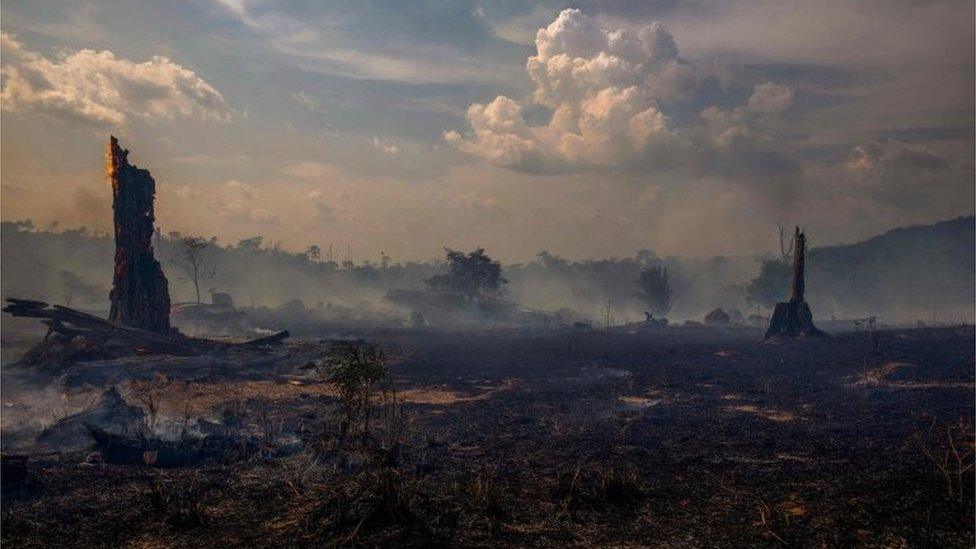
Altamira is one of the areas most devastated by the fires
And following President Bolsonaro's meeting with the governors late on Tuesday, presidential spokesman Rego Barros said the Brazilian government "is open to receiving financial support from organisations and countries".
However, Mr Barros stipulated that the aid would have to have the "total governance of the Brazilian people". There has been no response yet from the French government or the G7 countries.
The governor of Maranhão state, Flávio Dino, said he and his counterparts from other affected states had told Mr Bolsonaro that "it's not the moment to turn down money".
What other aid has been pledged?
Apart from the $22m the G7 countries offered, Hollywood actor Leonardo DiCaprio also pledged $5m to help fight the fires.
US President Donald Trump tweeted that Mr Bolsonaro and Brazil "have the full and complete support of the USA", external.
Reuters news agency says it has been told by a diplomatic source in Brasilia that the Brazilian government has accepted $12.2m from the UK government.
What is Brazil doing to stop the fires?
The government says it has deployed 44,000 soldiers to seven states to combat the fires.
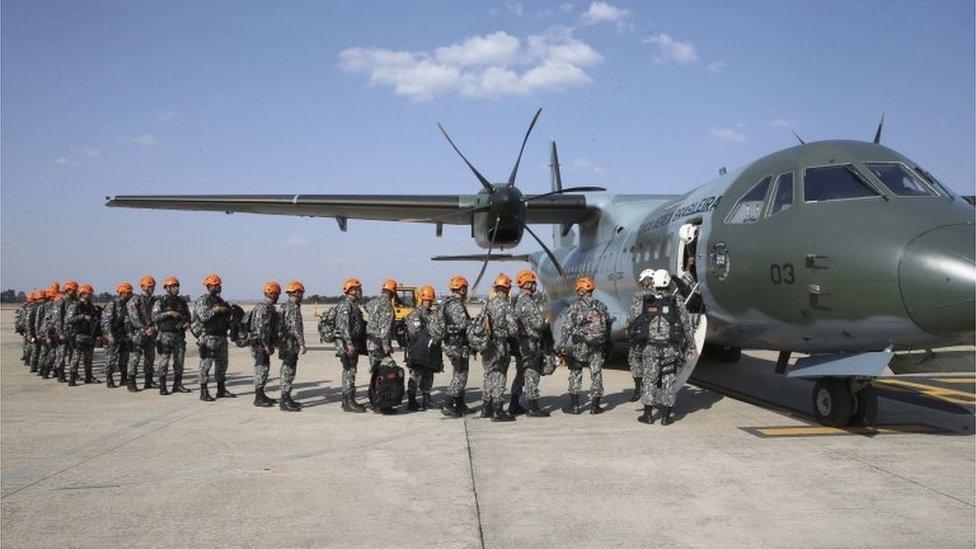
Firefighters and soldiers have been deployed
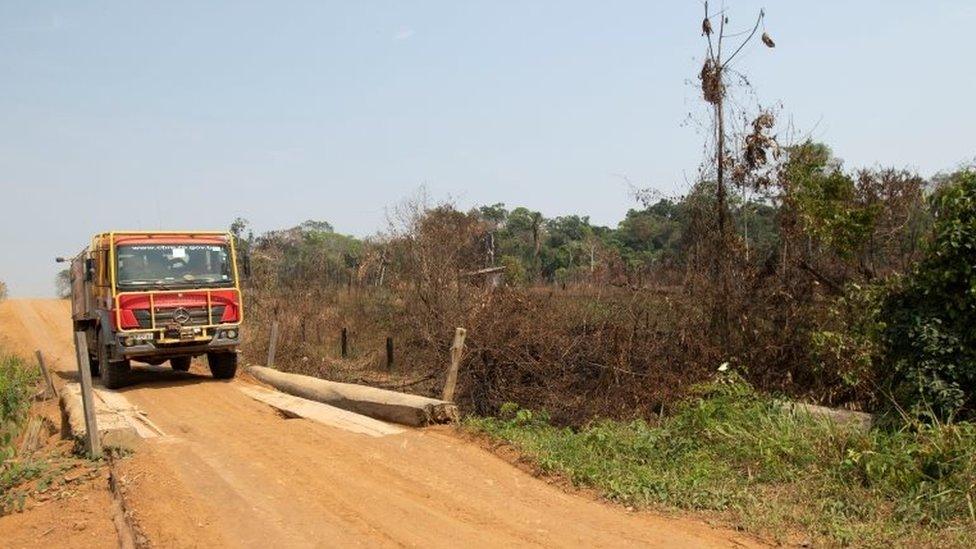
But the area affected is huge
Prosecutors are also investigating allegations that some of the fires were trigged by the illegal clearing of land.
The justice ministry says that federal police officers would be sent to the fire zones to assist other state agencies in combating "illegal deforestation".
Are there more fires than in recent years?
Data published by Brazil's space agency, external suggests there are. The agency, known as Inpe, says there have been more than 83,000 fires between 1 January 2019 and 27 August 2019. That is a 77% rise compared to the same period in 2018.



Nasa has also warned, external that the "2019 fires season has the highest fire count since 2012".
BBC analysis has also found that the high number of fires being recorded coincides with a sharp drop in fines being handed out for environmental violations.
What are people on the ground saying?
Jorgimar Alberto, from Roraima, one of the states most affected by the fires, has seen the burning of most of the land surrounding his wooden house.
"It's a risky situation, we have lots of crops here and everything is burning, such as the cashew trees," he told the BBC.
"I even had to keep the animals [inside] so that they don't burn as well. Every year it is the same, these fires are disturbing the region a lot."
Environmental officials helped him extinguish the fires last week only for them to reignite, he said.
His wife could not stand staying in the house with the smell of burning and the threat getting ever closer, so she left.
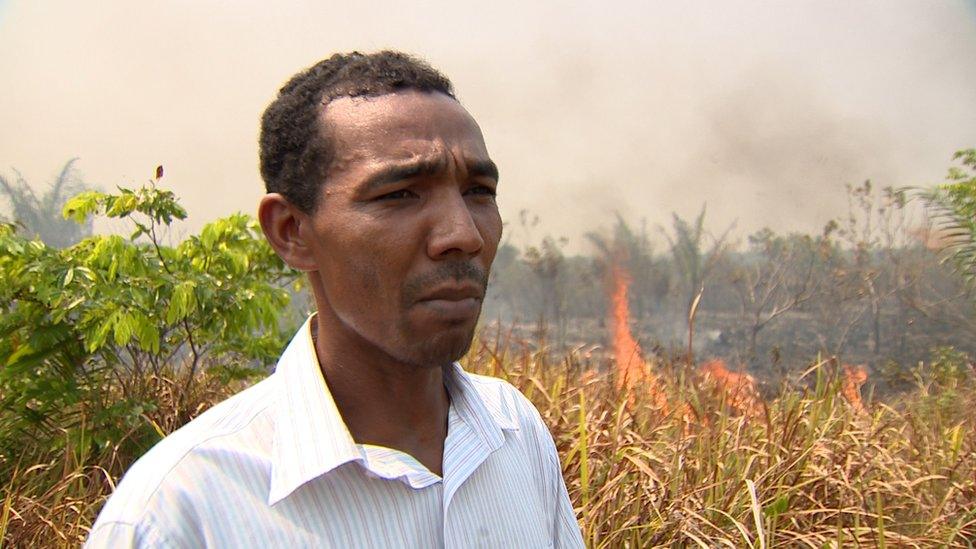
Jorgimar Alberto
Dr Daniel Pires, meanwhile, told Brazil's Folha de S. Paulo newspaper that the number of children he had seen with respiratory problems since the early part of the month had doubled.
"This period has been very tough. The dry weather and the smoke causes many problems for children, such as pneumonia, coughing and secretion," the paediatrician, who works at Cosme e Damia Children's hospital in the Rondonia state capital of Porto Velho, said.
But lumberyard owner Edson Oliveira from southern Amazonas said he did not believe the media coverage about the Amazon.
"In my opinion, the parts that are burning are the same that burn every year," he told the BBC.
Asked what he would like politicians to do for the Amazon, he said that he would like "economic alternatives for people here, to find a way we can make use of the natural wealth we have here".
"It's no use pointing the finger at what's wrong without bringing alternatives to people," he said.
- Published27 August 2019
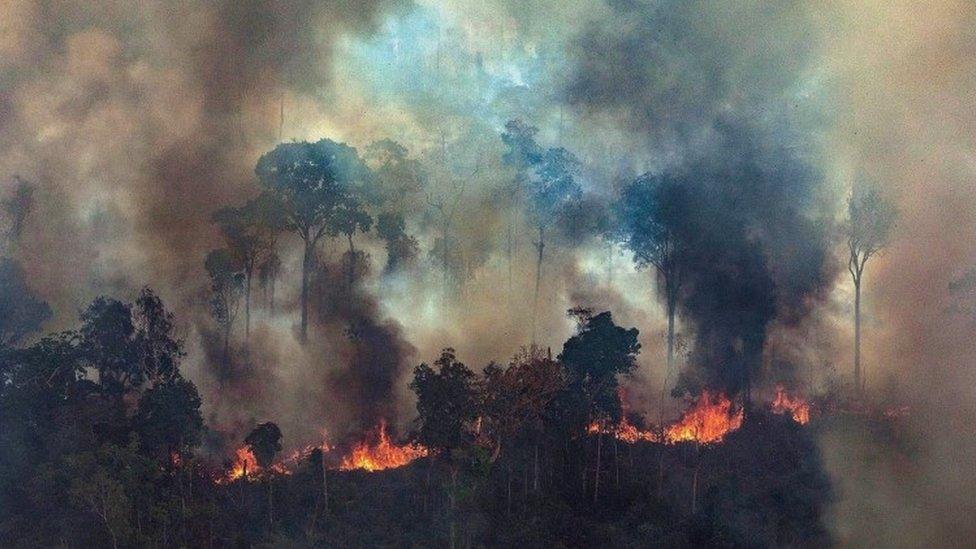
- Published21 August 2019
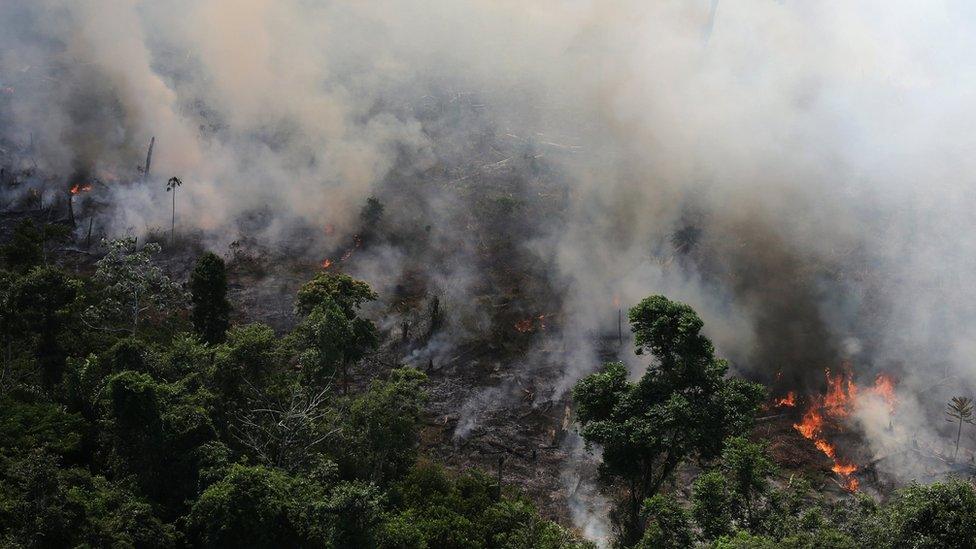
- Published23 August 2019
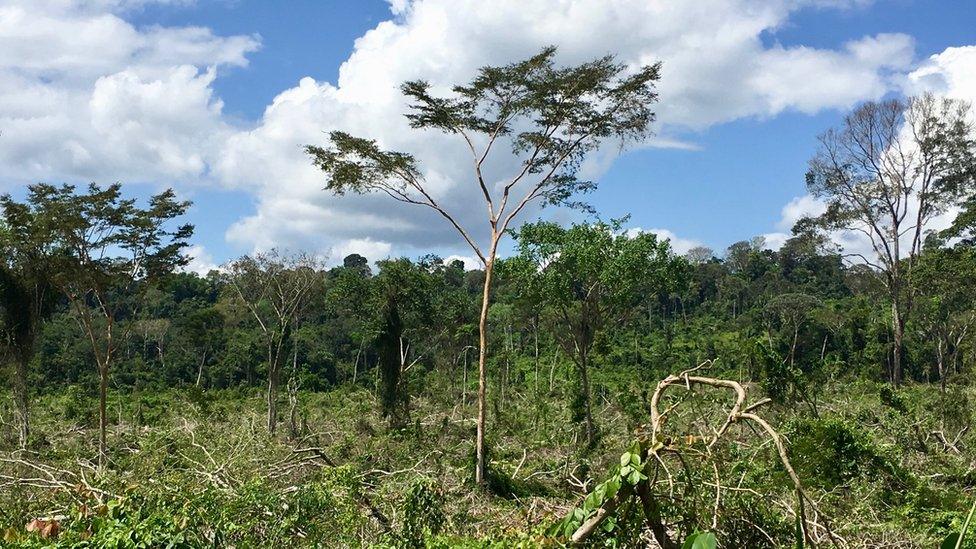
- Published2 August 2019
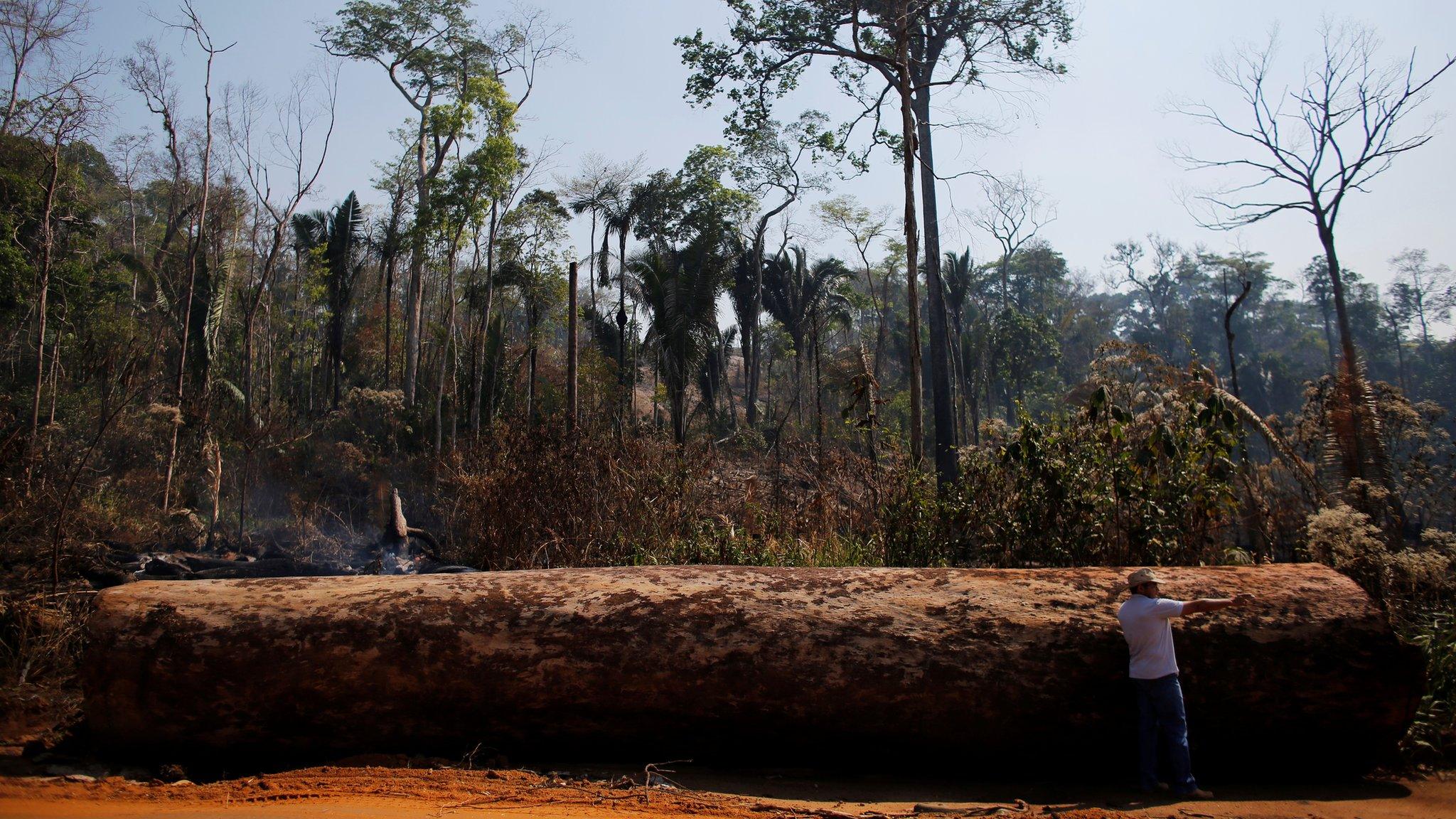
- Published24 August 2019
